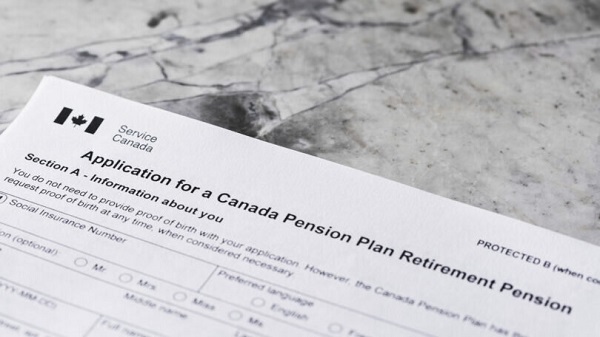ESG
Can’t afford Rent? Groceries for your kids? Trudeau says suck it up and pay the tax!

Watch Canada’s Prime Minister tell an anti-poverty group, your ability to buy “groceries for my kids” is less important than sacrificing to pay his carbon tax.
In case you still thought there might be even the tiniest chance Justin Trudeau might come around.. well this settles it. He is as they say, ‘beyond the pale’.
Sure we’ve pieced this together over the last number of years, but it’s still SHOCKING to see him say it directly, proclaim it proudly. This week Trudeau received applause from an audience of the intellectually suffering at something called the “Global Citizen Now” panel discussion on the sidelines of the G20 Leaders’ Summit in Rio.
Much appreciation for the first short video below to Opposition Leader Pierre Poilievre who shared his ferocious reaction to Trudeau’s anti-human comments, challenging the current PM to call an immediate election.
Or course there will be no quick election call. To Justin, it’s more important to cling to the undercarriage of a taxpayer funded jet so he can fly the globe stunning audiences unfortunately already stunned by their utter terror of losing the planet.
In their horror at their inability to turn the switch off and let us all freeze/starve to death this winter, they applaud lovingly for their intellectual leader/sock model as he describes how hard it is to convince angry, hungry people they really need to suck it up.
If only he read a history book.. any history book.. apologies, any book at all. Truly even spending some time with the literary version of an Al Gore video rant would at lest keep JT occupied so he couldn’t speak for a few moments. I’m pretty sure every time he opens his mouth, the temperature in Canada rises as millions of frustrated hotheads (hello there) explode, spewing steam high up into the upper atmosphere where water particles do much more damage to our planet than the final exhaling of a non grocery-eating-planet-loving-Canadian.
Watch Pierre Poilievre’s video and assuage the ensuing headache by mapping out your route to a polling booth. If this doesn’t sell a couple of those ‘Axe the Tax’ shirts for the Poilievre team, well.. enjoy your stroll to the foodbank.
Here’s a link to his entire discussion. If you have a strong stomach and 20 minutes of your life to donate to a higher cause… No silly, not the intended cause of the anti-poverty group… But to the intellectual cause of understanding just how twisted the logic has become for those who fly around the world to wine and dine, only to break long enough to tell us they think it’s perfectly fine if we can’t buy groceries for our kids.
By the way, please save a bit of your shock and disappointment for the hapless host of the ‘anti-poverty’ Global Citizen. This was apparently on the sidelines of a G20 Summit. I would expect this drivel to be called out at a respectable middle school debate. Apparently the ‘anti-poverty’ Global Citizen people aren’t overly concerned with poverty. Do we need to say that not being able to afford groceries is in fact THE definition of poverty? Or course not. It would be much easier for them to change their name to Former Global Citizens.
You were warned.
Banks
Canada Pension Plan becomes latest institution to drop carbon ‘net zero’ target

From LifeSiteNews
Changes to the law require companies to more rigorously prove their environmental claims.
The investment group in charge of Canada’s governmental pension plan has ditched its “net zero” mandate, joining a growing list of major institutions doing the same.
According to the Canada Pension Plan (CPP) Investments’ latest annual report, the entity is no longer committed to carbon “net-zero” by 2050. The CPP’s ditching of the target comes after a number of major institutions, including the Royal Bank of Canada (RBC), Toronto-Dominion Bank (TD), Bank of Montreal (BMO), National Bank of Canada, and the Canadian Imperial Bank of Commerce (CIBC), all made similar moves in recent months.
While ditching the net-zero effort, chief executive of CPP Investments John Graham maintained that it is still “really important to incorporate climate and incorporate sustainability” in its long-term investment portfolio.
The dropping of the “climate” target comes as recent changes to Canada’s Competition Act now mandate that companies prove any environmental claims they make, with Graham insinuating these changes were a factor in the decision.
“Recent legal developments in Canada have introduced, kind of, new considerations around how net-zero commitments are interpreted, so that’s caused us to change a little bit how we talk about it, but nothing’s changed on what we’re actually doing.”
Over the past decade, left-wing activists have used “net zero” and “environmental, social & governance” (ESG) standards to encourage major Canadian and U.S. corporations to take particular stands on political and cultural issues, notably in promotion of homosexuality, transgenderism, race relations, the environment, and abortion.
Outside of Canada, many major corporations have announced they are walking back DEI and other related policies. Some of the most notable include Lowe’s, Jack Daniel’s, and Harley Davidson. Other companies such as Disney, Target, and Bud Light have faced negative sales due to consumers fighting back and refusing to patronize the businesses.
Since taking power in 2015, the Liberal government, first under Justin Trudeau and now under Mark Carney, has continued to push a radical environmental agenda in line with those promoted by the World Economic Forum’s “Great Reset” and the United Nations’ “Sustainable Development Goals.” Part of this push includes the promotion of so called net-zero energy by as early as 2035.
Business
The net zero industry is collapsing worldwide. Hopefully it will be abandoned for good

From LifeSiteNews
Perhaps the fundamental failure of Net Zero was political. Permission was never sought from taxpayers who would pay the costs and suffer the consequences of an always ill-fated enterprise.
The grand vision of “Net Zero” initiatives – by which emissions of carbon dioxide magically balance with expensive and futile capture and storage systems – have long been sold as the redemption arc for humanity’s profligate modern ways. Yet, like a poorly scripted dystopian thriller, the holes in this plot are glaring.
Net Zero was always a fragile concept. It rested on shaky and illogical assumptions: that wind turbines, solar panels and “green” hydrogen could reliably replace fossil fuels, that governments could redesign economies without unintended consequences, that voters would accept higher costs for daily necessities, and that developing countries would sacrifice growth for climate targets they had no hand in creating.
None of those fantasies held. Countries did not decarbonize nearly at the speed promised, even though climate bureaucracies clung to the illusion. Long-range targets, five-year reviews, and international pledges lacked common sense and defied physical and economic realities. The result? An unaccountable machine pushing impractical policies that most people never voted for and are now beginning to reject.
If Net Zero were a serious endeavor, its architects would confront the undeniable: China and India are more than delaying their decarbonization timelines – they’re burying them. Why has this been ignored?
China and India – responsible for more than 40% of global CO2 emissions in the last two decades – are accelerating fossil fuel use, not phasing it out. In Southeast Asia, coal, oil and natural gas continue to dominate. Vietnam, Indonesia and the Philippines are building new electric generating power plants using those fuels. These countries understand that economic growth comes first.
Africa, too, is pushing back. Leaders in Nigeria, Ghana, and Senegal have criticized Western attempts to block fossil fuel financing. African nations are investing in exploitation of oil and gas reserves.
If Asia represents the global rejection of Net Zero, Germany and the U.K. are poster children of the West’s self-inflicted wounds. Both nations, once hailed as Net Zero pioneers, are grappling with the harsh realities of their green ambitions. The transition to “renewables” has been plagued by economic pain, energy insecurity, and political backlash, exposing the folly of policies divorced from facts. When the war in Ukraine cut off energy supplies, Germany panicked. Suddenly, coal plants were back online. The Green Dream died a quiet death.
READ: Top Canadian bank ditches UN-backed ‘net zero’ climate goals it helped create
Trump funding cuts likely will accelerate the fall of Net Zero’s house of cards. The president’s decisions to slash financing for international and domestic green programs has severed the lifeline for global climate initiatives, including the United Nations Environment Program. Trump also vowed to redirect billions from the Inflation Reduction Act – Biden’s misnomered climate law – toward fossil fuel infrastructure.
The retreat of Net Zero interrupts the flow of trillions of dollars into an agenda with questionable motives and false promises. Climate finance had developed the fever of a gold rush. Banks, asset managers, and consulting firms hurried to brand themselves as “green.” ESG (Environmental, Social, Governance) investing promised to reward “climate-friendly” firms and punish alleged polluters.
The fallout was massive market distortions. Companies shifted resources to meet ESG checklists at the expense of fiduciary obligations. Now the tide is turning. The Net Zero Banking Alliance comprising top firms globally has been abandoned by America’s leading institutions. Similarly, a Net Zero investors alliance collapsed after BlackRock’s exit.
Perhaps the fundamental failure of Net Zero was political. Permission was never sought from taxpayers and consumers who would pay the costs and suffer the consequences of an always ill-fated enterprise. Climate goals were set behind closed doors. Policies were imposed from above. Higher utility bills, job losses and diminished economic opportunity became the burdens of ordinary families. All while elites flew private jets to international summits and lectured about the need to sacrifice.
A certain lesson in the slow passing of Net Zero is this: Energy policy must serve people, not ideology. That truth was always obvious and remains so.
Yet, some political leaders, legacy media and industry “yes-men” continue to blather on about a “green” utopia. How long the delusion persists remains to be seen.
Vijay Jayaraj is a Science and Research Associate at the CO2 Coalition, Fairfax, Virginia. He holds an M.S. in environmental sciences from the University of East Anglia and a postgraduate degree in energy management from Robert Gordon University, both in the U.K., and a bachelor’s in engineering from Anna University, India.
Reprinted with permission from American Thinker.
-

 International2 days ago
International2 days agoSecret Service suspends six agents nearly a year after Trump assassination attempt
-

 Bruce Dowbiggin1 day ago
Bruce Dowbiggin1 day agoThe Covid 19 Disaster: When Do We Get The Apologies?
-

 Crime20 hours ago
Crime20 hours agoSweeping Boston Indictment Points to Vast Chinese Narco-Smuggling and Illegal Alien Labor Plot via Mexican Border
-

 Alberta1 day ago
Alberta1 day agoAlberta school boards required to meet new standards for school library materials with regard to sexual content
-

 Business2 days ago
Business2 days agoWEF-linked Linda Yaccarino to step down as CEO of X
-

 Automotive2 days ago
Automotive2 days agoAmerica’s EV Industry Must Now Compete On A Level Playing Field
-

 Environment21 hours ago
Environment21 hours agoEPA releases report on chemtrails, climate manipulation
-

 Business2 days ago
Business2 days ago‘Experts’ Warned Free Markets Would Ruin Argentina — Looks Like They Were Dead Wrong



